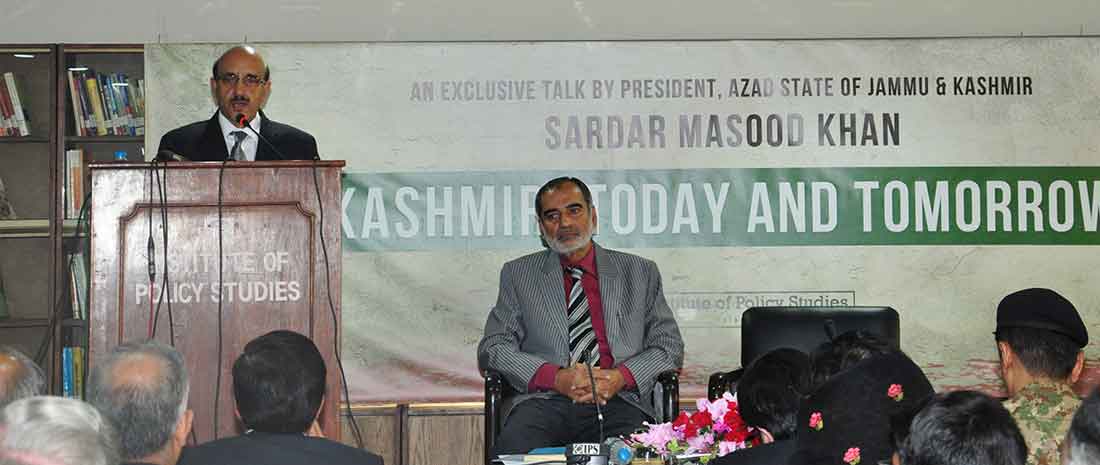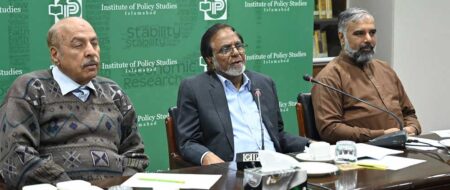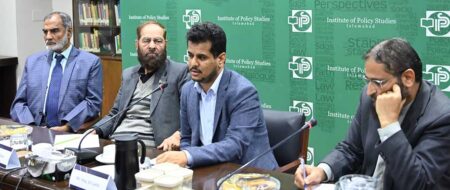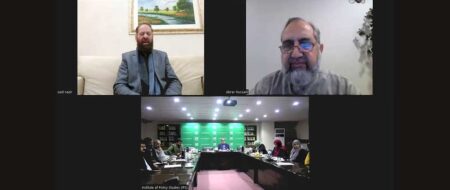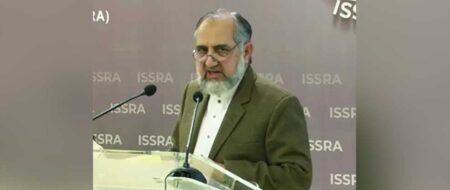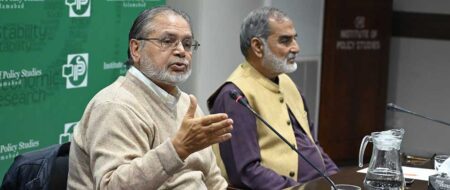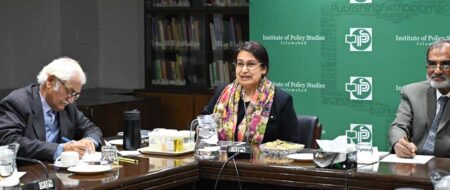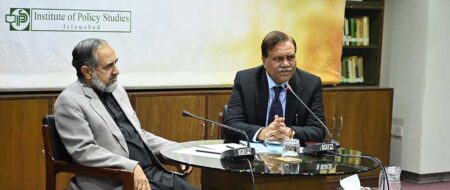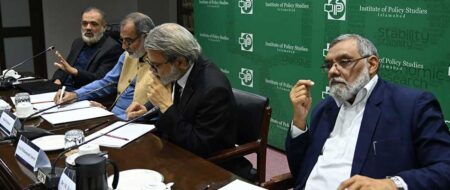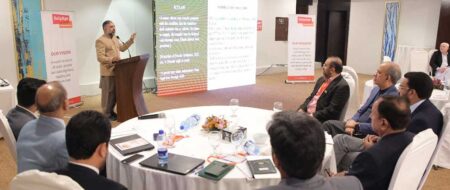Kashmir: Today and Tomorrow
Economically stable Pakistan, critical for success of Kashmir’s freedom struggle: President AJK
Terming the political, strategic, economic and social viability of Pakistan essential for the success of Kashmir’s freedom struggle, the President Azad Jammu and Kashmir(AJK) Sardar Masood Khan has linked the region’s fate directly with Pakistan’s strength.
He was delivering an exclusive lecture titled ‘Kashmir: Today and Tomorrow’ at Institute of Policy Studies (IPS), Islamabad on October 18, 2017.
Khan said that contrary to the Indian propaganda, the Pakistani side of Kashmir was thriving politically and economically. Today, the literacy rate of AJK is highest among other parts of Pakistan and it has five universities and a medical college while several development projects particularly in the energy sector have been completed or are near completion.
AJK is producing 1500MW electricity of which 400MW is for its own needs and the rest 1100MW is supplied to the national grid, he stated. In the near future, the cascade of run-of-the-river hydropower projects from Neelum-Jehlum to Kahuta will contribute immensely to the country’s electricity needs.
Underscoring AJK’s importance in China Pakistan Economic Corridor (CPEC) he reminded that it is also beneficial for the people and economy of Indian Occupied Kashmir (IoK) and even its Chief Minister Mehbooba Mufti has given a statement that her government wants to reap the benefits of this regional and international connectivity mega project.
Calling Pakistan a window to the world for Kashmir’s struggle, Masood applauded Pakistan’s role in keeping Kashmir issue alive in the international arena stating that the country had to make sacrifices in this long period of seventy years but it never relinquished its support for the freedom movement.
Speaking of the Indian propaganda, he AJK’s head of state said that India was deliberately trying to blur the lines between freedom struggle and terrorism to hide its atrocities and the presence of over seven lacs Indian forces in the occupied region, which was indicative of the fact that there are crimes against humanity taking place there, there is suppression and there are attempts to doctor the population’s ratio to support the Indian narrative.
Rejecting the Indian accusations against Pakistan for supporting militant groups in Kashmir he claimed that there were no non-state actors from Pakistan operating across the Line of Control (LOC), which is heavily sealed through barbed wires and latest surveillance technology. The ongoing struggle and fight for freedom of Kashmir was indigenous and was armed with only believe and conviction of freedom fighters, he remarked.
The speaker said that now it was the fifth generation in Kashmir that was fighting its war of independence against India and the country’s youth is now also raising its voice through social media and unarmed street power.
Masood also spoke about the role of UN and the international community over the matter stating that their behavior largely lacked empathy and was based on double standards.
Executive President of IPS, Khalid Rahman in his concluding remarks urged the young researchers of Pakistan to contribute their bit in the Kashmir struggle by conducting much needed studies on the various aspects of the issue and getting them published internationally.


